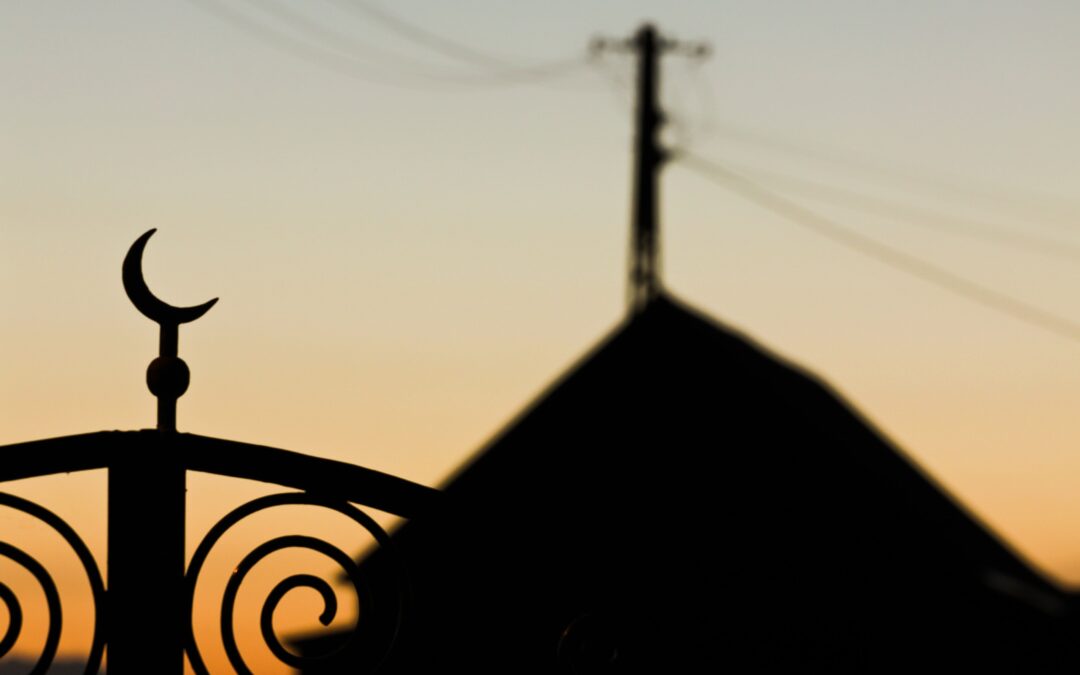Christians and Muslims in Poland came together this week for joint prayers, readings from the Bible and Koran, and discussions as part of the Catholic church’s annual Day of Islam.
The 21st edition of the event was held online under the motto “Christians and Muslims: together protecting places of worship”. It comes shortly after the church also held its annual Day of Judaism.
The event was established in 2001 by the Polish Bishops Conference (KEP), the central organ of the Catholic church in Poland, initially as a day of “prayer for Islam”. It is now devoted to overcoming prejudice and promoting dialogue between religions.
“We should do everything to make sure that places of worship are always safe and open, not only to those who are praying there, but also to everyone seeking shelter there, or even just rest, regardless of their faith or worldview,” wrote the members of Joint Committee of Catholics and Muslims in Poland in their invitation to this year’s event.
“The Day of Islam shows us what unites, not divides, Muslims and Christians,” said Henryk Ciereszko, auxiliary bishop of Białystok and head of the episcopate’s Committee for Dialogue with Non-Christian Religions.
Bp Henryk Ciereszko na XXI #DzieńIslamu w Kościele katolickim w Polsce, który obchodzimy dzisiaj: #Dzień Islamu ma służyć wskazywaniu na to, co łączy, a nie dzieli muzułmanów i chrześcijan.https://t.co/guSEqQibBP pic.twitter.com/EiFiLqsoK5
— EpiskopatNews (@EpiskopatNews) January 26, 2021
This year’s motto “highlights the importance and the role of those places, Catholic churches and Muslim mosques, where God is worshipped and prayers are conducted,” added Ciereszko, quoted by KAI.
Ciereszko stressed that the initiative is in no way a “tribute to Islam”. “On the contrary,” he said, “it is a way to stand courageously in the truth of one’s religion and expression of authentic freedom in dialogue and meeting, without fear of any infringement of one’s own faith.”
Poland is home to a relatively small number of Muslims – around 20,000-25,000, according to estimates by the Muslim Religious Union in Poland (MZR). However, among them is one of Europe’s oldest Muslim communities, the Lipka Tatars, who have lived in Polish lands since the 14th century.
While the main celebrations to mark the Day of Islam have traditionally been held in Warsaw, this year’s event took place online due to coronavirus restrictions.
In one event, a discussion was organised by the Centre of Three Cultures in Suchowola. north-eastern Poland, between the mufti of the Muslim Religious Union, Tomasz Miśkiewicz, who grew up in the town, and a local Catholic priest, Tomasz Małyszko.
That region is home to the Lipka Tatars. However, today the majority of Muslims are more recent arrivals, usually living in large cities. Poland has recently been experiencing the highest levels of immigration in its history, including some arrivals from mostly Muslim countries such as Turkey.
A new Polish-language website launched last year aims to provide online educational resources on Islam and to challenge common stereotypes about the community.
Anti-Muslim attitudes were stoked in particular during the 2015 refugee crisis and have continued to be cultivated by the ruling Law and Justice (PiS) party. In 2019, Jarosław Kaczyński, the chairman of PiS and Poland’s de facto leader, described Islam as a “cultural offensive” that “Europe must defend itself” from.
“The Day of Islam in the Catholic Church is a unique initiative and has no counterparts in other countries,” Father Wojciech Kluj, a professor at Cardinal Stefan Wyszyński University, told Catholic weekly Niedziela. But the event is in no way an expression of acceptance of “religious fundamentalists”, he added.
“There is a huge threat of stirring social unrest or even wars by people referring to the ideology of Islam. The direct prevention of them lies more with the state services than with official church institutions. We can only create the right climate,” continued Kluj.
Asked about the possibility of harmonious dialogue between Christians and Muslims, Kluj answered that “it not only possible, but it already exists and it is developing very well”.
Main image credit: Ministry of Foreign Affairs of the Republic of Poland/ Flickr (under CC BY-NC 2.0)

Agnieszka Wądołowska is deputy editor-in-chief of Notes from Poland. She is a member of the European Press Prize’s preparatory committee. She was 2022 Fellow at the Entrepreneurial Journalism Creators Program at City University of New York. In 2024, she graduated from the Advanced Leadership Programme for Top Talents at the Center for Leadership. She has previously contributed to Gazeta Wyborcza, Wysokie Obcasy and Duży Format.




















